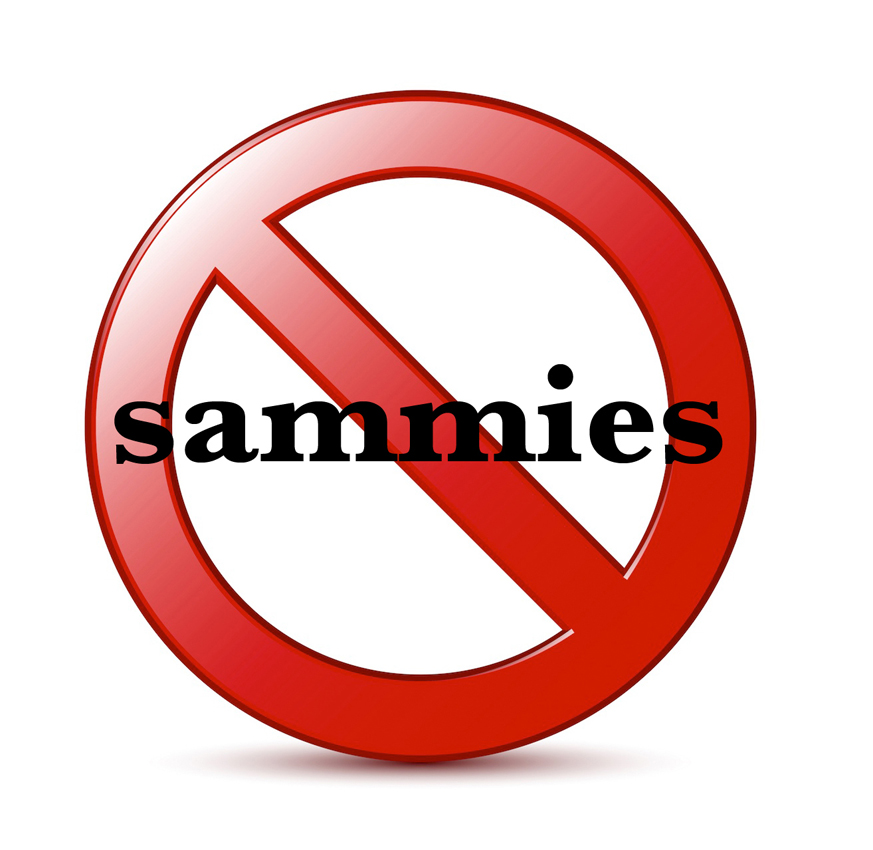The Local newsletter is your free, daily guide to life in Colorado. For locals, by locals.
Despite the 5280 staff’s collective decades of experience writing and editing stories, we’re still often surprised by the elements in a story that upset our readers. For instance, the word “sammies.”
Just a few days after April’s “Hidden Colorado” story hit newsstands, one reader wrote in to ask us to quit using the word. It’s not our first choice either, but since we can only say sandwich so many times (and sammies takes up less space—an important distinction when you only have a few lines to devote to a write-up), the word will probably make another appearance at some point. But we’ll certainly take it under consideration the next time we’re in a tight spot. (For what it’s worth, food editor Amanda Faison also dislikes the use of “sammies.”)

The whole affair has us thinking about our own word-smithing pet peeves—the words and phrases that irritate us, often for no real reason. It is a matter of personal preference. Here, we offer you a glimpse of the many words you’ll likely never (or at least rarely) see used by 5280. We added a few of our favorite words, too, so you don’t think we’re all just a bunch of curmudgeons (which is one of senior editor Kasey Cordell’s favorite words, by the way).
Food Editor Amanda Faison
Hates: Moist.
Loves: Onomatopoeia.
Digital Assistant Editor Jerilyn Forsythe
Hates: Vagabond. It’s just an ugly sounding word.
Loves: Ubiquitous: It’s round and lovely rolling off the tongue, and I also like its meaning.
Features Editor Lindsey Koehler
Hates: I actually hate it when editors say they don’t like a particular word, so it shouldn’t be used. It’s ridiculous to limit language that way. That being said, here are my least favorites:
Gem: It’s overused and just a little too precious for me.
Thing: It’s vague and, again, overused; I want a writer to find a better word for this easy-to-use noun.
That: We all do it, but this word isn’t often necessary in sentence structure. (Editor’s note: except in the two instances above, of course.)
Superlative: I hate this when it’s actually used as a superlative.
Associate Editor Daliah Singer
Hates: Foodie. Phlegm. Rural, mainly because it’s hard to say. Hate (I think it’s overused and inaccurately applied).
Loves: Melafefon. It means “cucumber” in Hebrew and makes me smile. I’ve also always had a thing for the word “tryst.” There is just something beautiful and secretive about it.
Senior Staff Writer Robert Sanchez
Hates: Mixologist. And anything with uber.
Copy Chief Jessica Farmwald
Hates: I really hate “preventative.” It means the same thing as preventive, just with an extra syllable thrown in there for absolutely no reason.
Loves: Our copy editor selected a favorite punctuation mark instead: Em dash, all day long. For the record: This – is a hyphen; this – is an en dash; and this — is an em dash.
Senior Editor Kasey Cordell
Hates: Impact as a verb, as in, “His decision to quit the team impacted me.” For one thing, it just makes me think of a bad wisdom tooth experience. For another, it’s a completely vague verb. Impacted how? Were you saddened? Frustrated? Elated? Overjoyed? Enraged? With so many beautiful verb choices out there, why pick something so ambiguous and limp?
Loves (besides curmudgeon): Sesquipedalian (an adjective that means, appropriately, characterized by using long words; click to hear how it’s pronounced). It’s just fun to say, although actually using it would be completely pompous (another great word).
In the past, you’ve also requested that we stop using “margs” and “vacay.” What did we miss? Tell us in the comments below.
Follow senior editor Kasey Cordell on Twitter @KaseyCordell
—Image courtesy of Shutterstock








